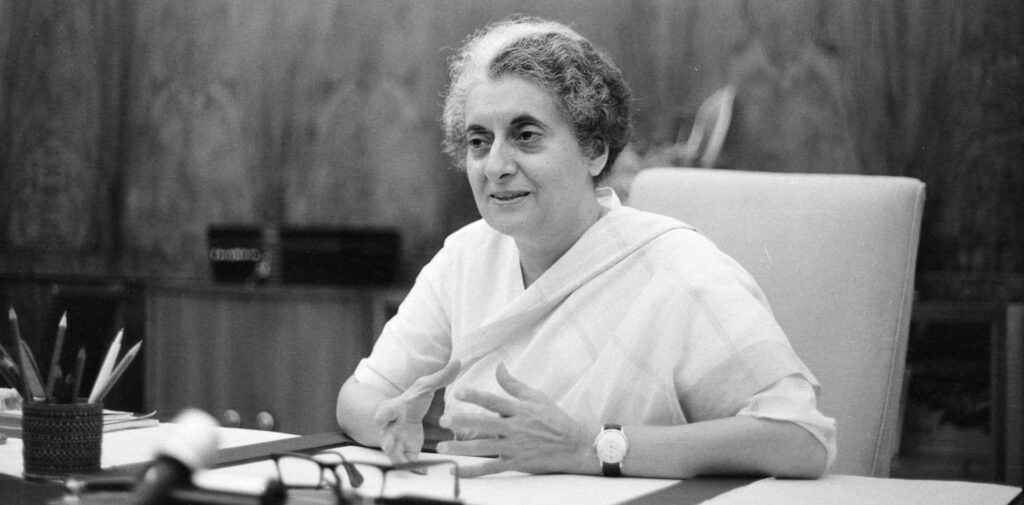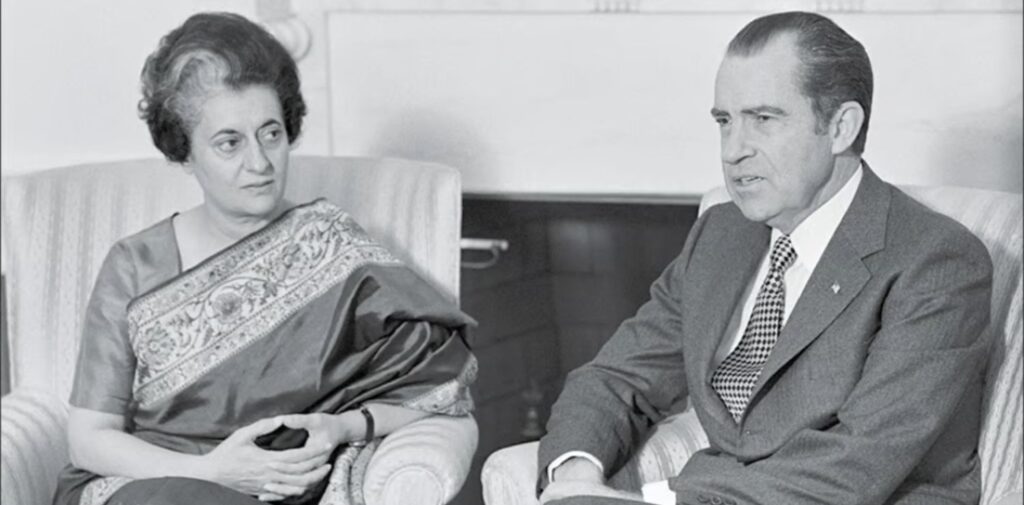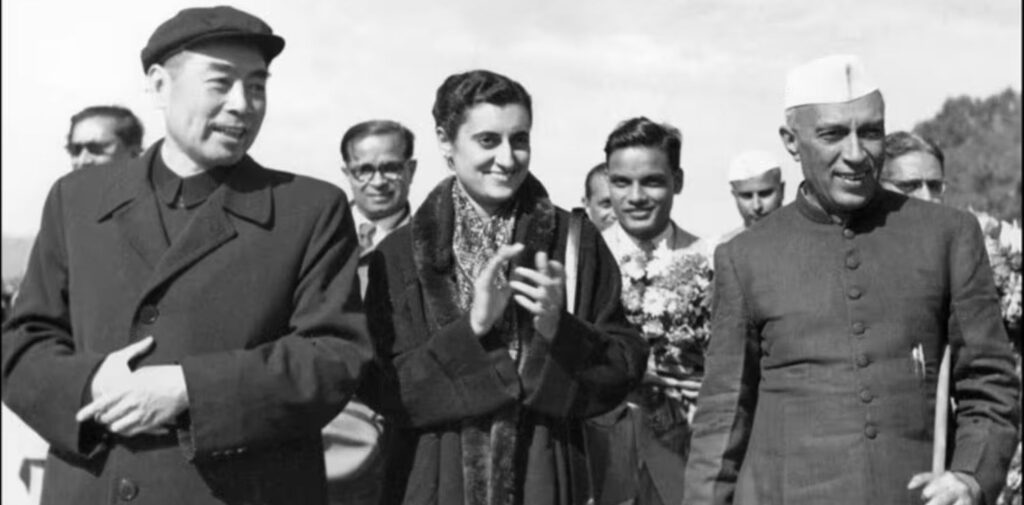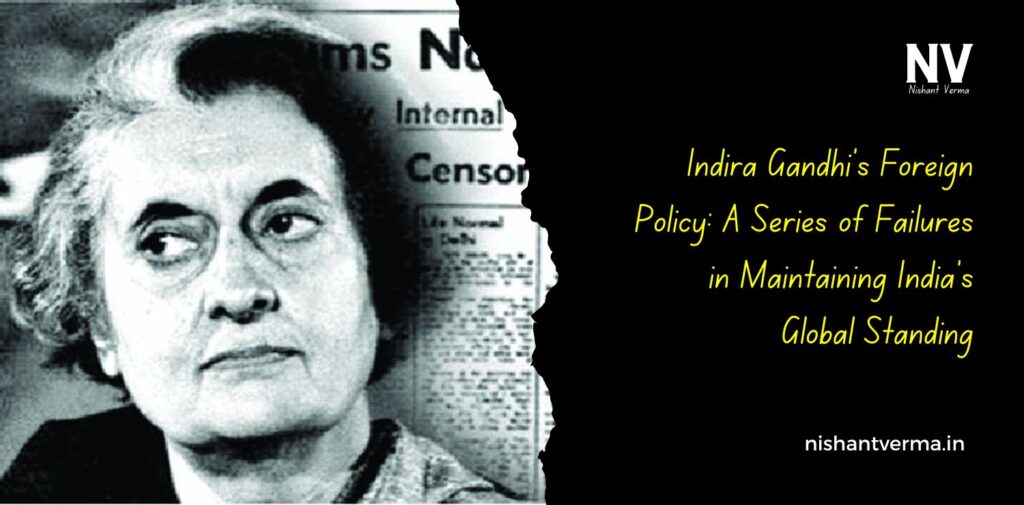Indira Gandhi, one of the most iconic and influential leaders in Indian history, served as the Prime Minister of India for over 15 years in two non-consecutive terms (1966–1977 and 1980–1984). Under her leadership, India saw significant domestic changes, such as the Green Revolution and the fight against poverty. However, when it came to foreign policy, Indira Gandhi’s tenure is often considered a period of missed opportunities and setbacks in India’s global standing.
While Indira Gandhi is often praised for her role in the 1971 India-Pakistan War, which led to the creation of Bangladesh, her overall foreign policy was marked by several failures. These include strained relationships with major powers, ineffective diplomacy, and missed chances to strengthen India’s position on the world stage. This article will explore how Indira Gandhi foreign policy efforts led to a series of failures that impacted India’s standing in the global community.

Indira Gandhi’s Approach to Global Leadership
Indira Gandhi entered the world stage with a vision of positioning India as a strong, independent, and non-aligned nation. As the leader of a newly independent country, India was already striving to assert its place in the international order. However, under her leadership, India’s foreign policy increasingly became centered on India’s domestic political agenda, rather than its long-term global strategy.
Indira Gandhi sought to assert India’s strength through bold actions, but her policies were often impulsive and did not always take into account the broader implications for India’s relationships with other countries. While she did enjoy some successes, such as in the 1971 war with Pakistan, her foreign policy also faced considerable criticism for its inconsistency and lack of vision.
Relations with the United States
One of the biggest failures of Indira Gandhi foreign policy was the deterioration of relations with the United States. The relationship between India and the U.S. was tense during the Cold War due to India’s non-aligned stance and its support for countries like the Soviet Union. However, under Indira Gandhi’s leadership, these tensions deepened, particularly in the 1970s.
The U.S. was unhappy with India’s close relationship with the Soviet Union, especially after the 1971 Indo-Soviet Treaty of Peace, Friendship, and Cooperation. This agreement made India dependent on the USSR for military and economic support. The United States, during the Cold War, was aligned with Pakistan, and this caused a great deal of diplomatic friction between India and the U.S.
In 1971, the U.S. sent its Seventh Fleet into the Bay of Bengal to intimidate India during the Indo-Pakistani War. This was a clear show of American support for Pakistan in the face of Indian military action. Indira Gandhi was outraged by this intervention, and it worsened relations between India and the United States. Despite the fact that the U.S. did not directly interfere in the conflict, the U.S.’s support for Pakistan made India feel isolated on the global stage.
The relationship never truly recovered after this. While there were moments of cooperation, such as the 1974 nuclear tests that resulted in the U.S. imposing sanctions on India, India’s strategic and political decisions moved further away from U.S. interests. The Indo-U.S. relationship during her tenure never evolved into the partnership that India would have hoped for.

Relations with Pakistan and the Creation of Bangladesh
Indira Gandhi’s handling of India-Pakistan relations is often viewed as both a success and a failure. On one hand, she won the 1971 India-Pakistan War decisively, leading to the creation of Bangladesh. This was a monumental event in Indian foreign policy, and it was seen as a great diplomatic and military victory.
However, the consequences of this war and the subsequent creation of Bangladesh were more complicated. While India’s military victory was a cause for celebration, it also led to long-term instability in the region. Pakistan, humiliated by its defeat and the loss of East Pakistan (now Bangladesh), became increasingly hostile toward India. This rivalry continues to affect India-Pakistan relations to this day.
Indira Gandhi foreign policy regarding Pakistan was often reactive rather than proactive. After the 1971 war, relations between the two countries remained cold, and her policy towards Pakistan seemed largely focused on keeping Pakistan weak rather than finding a way to build a lasting peace in the region. The result was a perpetuation of tensions, which, despite short-term military victories, failed to secure lasting peace or stability.
Relations with China
One of the greatest failures of Indira Gandhi foreign policy was her inability to improve relations with China, despite the 1962 Sino-Indian war that had left deep scars in India’s relationship with its northern neighbor. Indira Gandhi came to power in 1966, and while there were some attempts to improve relations with China, they were largely unsuccessful.
The 1962 war had left India humiliated, and Indira Gandhi, who came into office after a period of political turmoil, struggled to rebuild trust and confidence with China. Her government took steps to reassert India’s presence in the region, but the Chinese government remained suspicious of India’s growing ties with the Soviet Union. As a result, any meaningful dialogue with China remained elusive.
In 1980, after returning to power for a second term, Indira Gandhi sought to revive talks with China, but the situation remained tense. Although there were some diplomatic efforts, they did not lead to a breakthrough in resolving border issues or in improving bilateral relations. By the time of her assassination in 1984, India and China had not resolved key disputes, and their relationship was still strained.

Sri Lanka Crisis and the Indian Peacekeeping Force (IPKF)
In the 1980s, Sri Lanka became another focus of India’s foreign policy under Indira Gandhi’s leadership. The island nation was embroiled in a civil war between the Tamil Tigers (LTTE) and the Sri Lankan government. India, which had a large Tamil population and cultural ties with Sri Lanka, was drawn into the conflict.
Indira Gandhi initially supported the Tamil Tigers, hoping to strengthen India’s influence in Sri Lanka. However, this policy ultimately led to disastrous results. The Indian government found itself entangled in Sri Lanka’s civil war, and the Tamil Tigers turned against India, accusing it of not doing enough to support their cause.
In 1987, Indira Gandhi sent the Indian Peacekeeping Force (IPKF) to Sri Lanka to enforce a peace agreement between the Sri Lankan government and the Tamil Tigers. However, the peacekeeping mission turned into a failure. The IPKF struggled to maintain peace, and the mission was criticized for being ineffective and causing unnecessary casualties. The IPKF’s involvement in Sri Lanka worsened India’s image in the region, and the operation was seen as a failure in terms of both diplomacy and military strategy.
Failure to Strengthen India’s Position in the Global System
Indira Gandhi foreign policy often lacked a coherent long-term vision that could strengthen India’s position in the global system. While she took bold steps, such as the nuclear tests in 1974, India failed to leverage its growing influence in global affairs effectively. Her reliance on the Soviet Union and inability to build strategic relationships with other major powers, particularly the U.S., meant that India was often isolated in international forums.
India’s foreign policy during Indira Gandhi’s tenure lacked the consistency and foresight needed to position India as a global leader. The country failed to make the most of its size, population, and economic potential to assert itself on the world stage in a way that would benefit its long-term goals.
Conclusion: Indira Gandhi Foreign Policy
Indira Gandhi foreign policy, while marked by some significant military victories and bold moves, ultimately failed to secure India’s place as a strong, respected global power. Her decisions often lacked a strategic vision, and the consequences were felt in the form of strained relations with major powers, ongoing regional tensions, and missed diplomatic opportunities. While her leadership in the 1971 India-Pakistan war and the creation of Bangladesh remains one of her foreign policy successes, the overall record of her tenure reveals a series of failures in maintaining India’s global standing.




